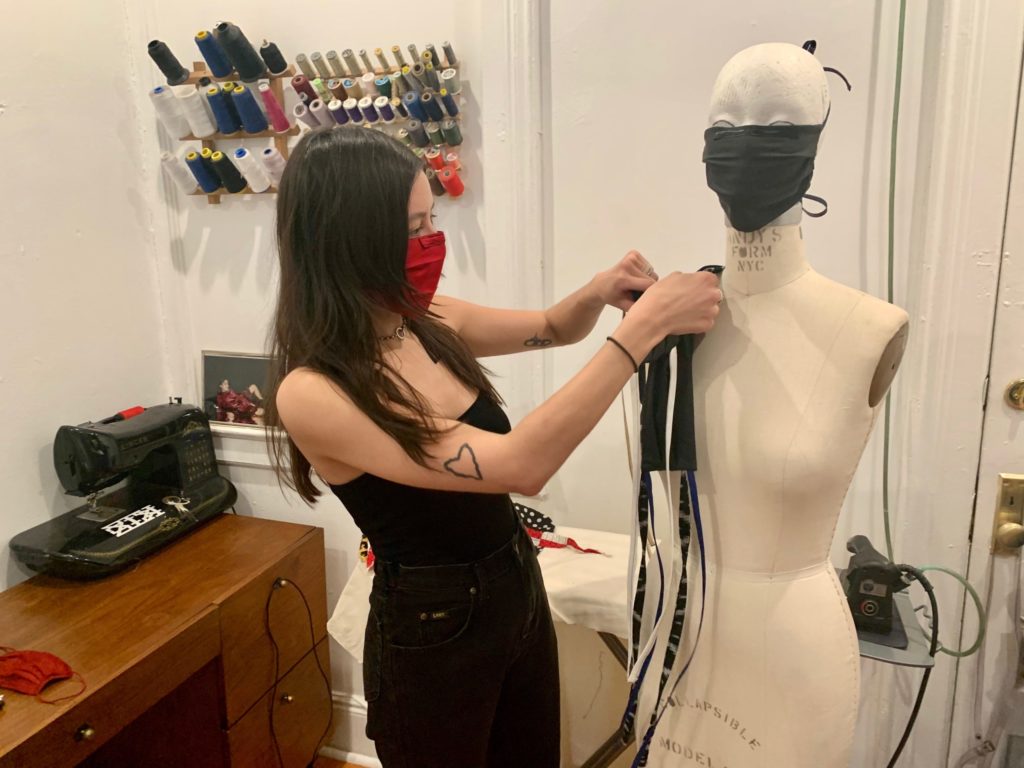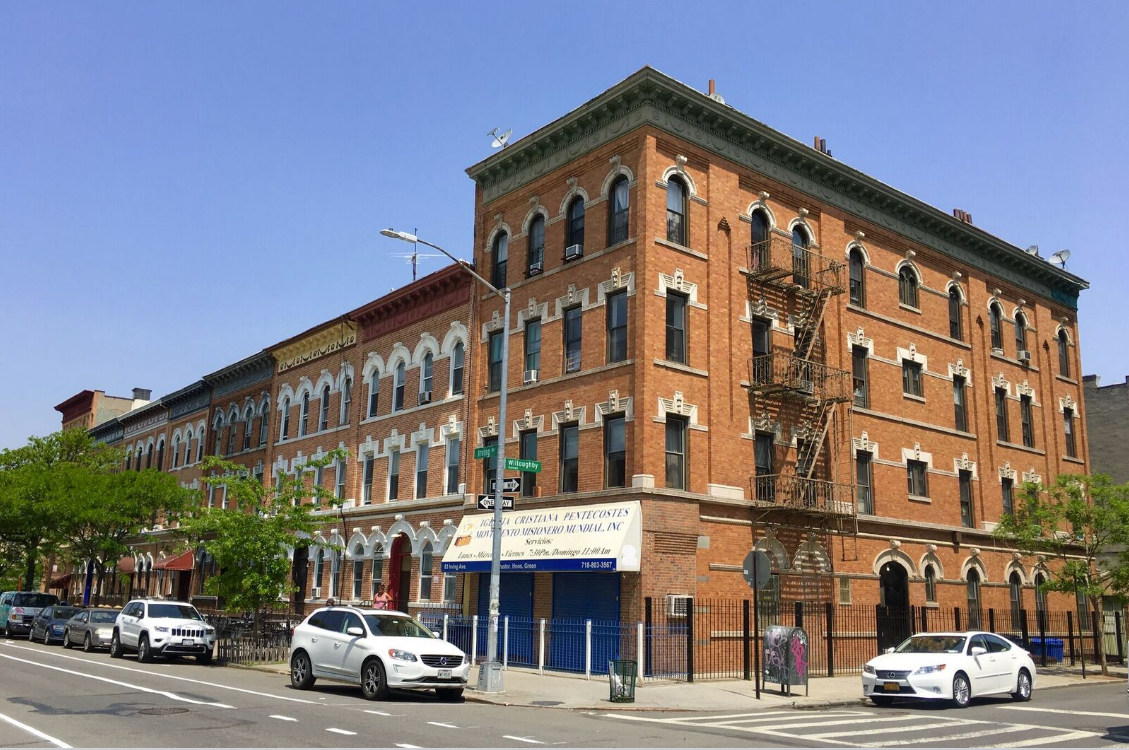The city’s hospitals are short on masks. Brooklyn’s artists are here to help.

Helena Eisenhart dresses a mannequin with a homemade fabric mask in her Bushwick studio. Photo: Tara Atefi.
Helena Eisenhart had lined up her career plans and was readying herself for a productive spring.
The 27-year-old fashion designer had just been promoted to a full-time assistant job at a womenswear brand, and as money started to trickle into her bank account, Eisenhart planned to spend nights and weekends stitching her personal collection together.
Then, the pandemic happened. Eisenhart’s company laid its staff off on March 19, and the next day, looking at her clothing sketches, she realized something.
